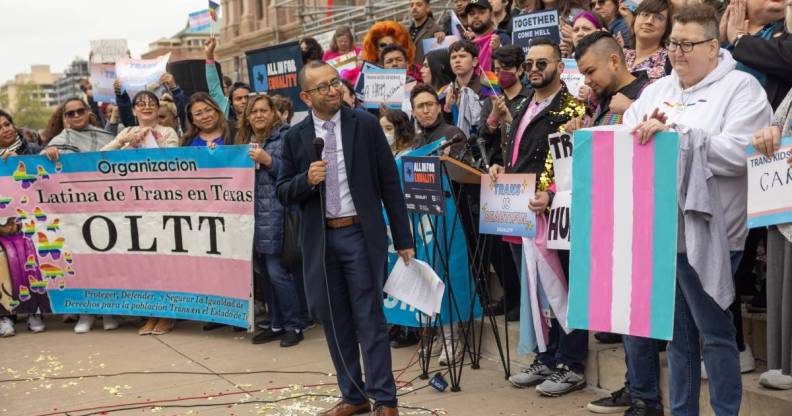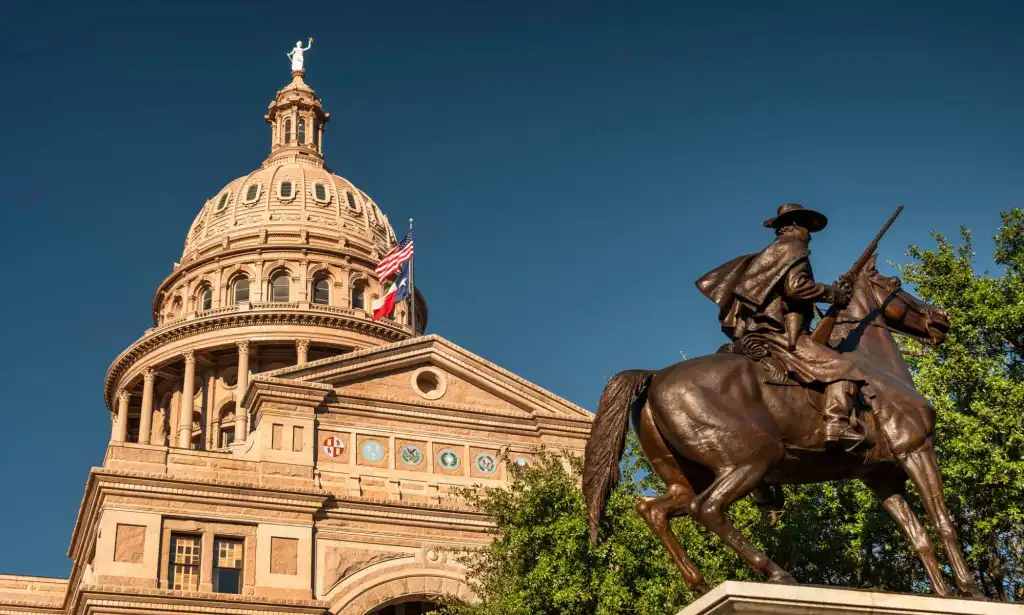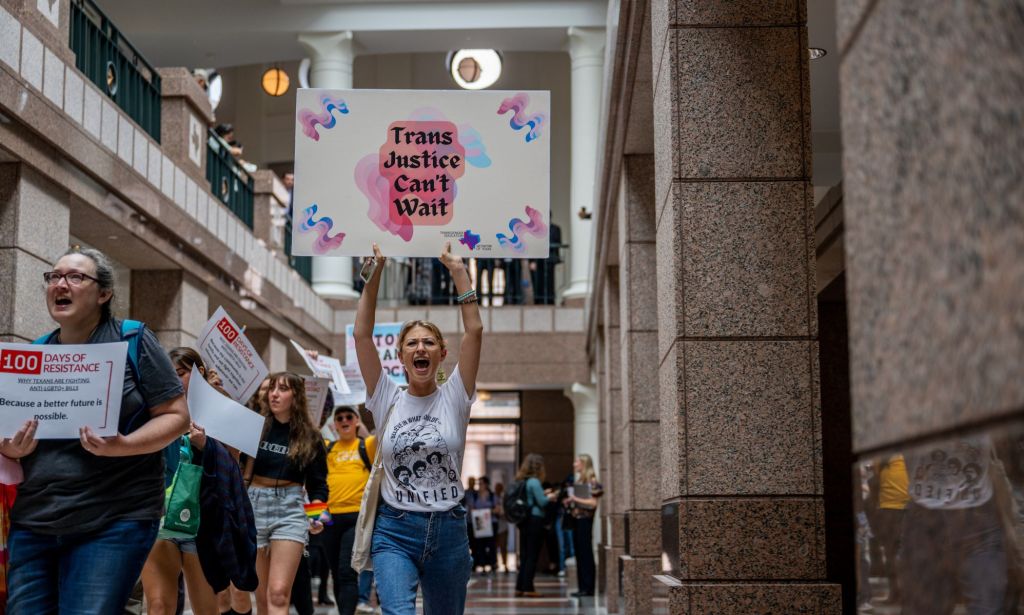LGBTQ+ rights groups file complaint to United Nations against Texas anti-LGBTQ+ bills

In 2023, human rights group teamed up to complain to the UN about Texas’s anti-LGBTQ+ bills. (Getty)
LGBTQ+ rights organisations including the ACLU of Texas, Equality Texas, and GLAAD have teamed up to file a complaint to the United Nations about Texas’s recent slew of anti-LGBTQ+ bills.
In 2023 alone, the ACLU recorded a horrifying 508 anti-LGBTQ+ bills that were introduced across the US. Of those 508 bills, 84 were passed into law.
Meanwhile, the Human Rights Campaign reports that one in five of every anti-LGBTQ+ bill introduced last year came from Texas lawmakers.
Anti-LGBTQ+ bills that were signed into law in Texas last year include blocking trans people under the age of 18 from accessing gender-affirming healthcare, and a ban on drag performances in public spaces or in the presence of children.

In an effort to counter this consistent onslaught of hateful bills designed to target a marginalised community, several human and LGBTQ+ rights organisations have teamed up to file an official complaint with the United Nations.
The complaint details seven bills in particular that they claim intentionally target or disproportionally impact the LGBTQ+ community.
Those bills are SB14 (a ban on gender-affirming care for trans youth), SB17 (a ban on public universities maintaining DEI programs), SB 15 (a ban on trans athletes competing at collegiate level), SB 763 (a bill that allows chaplains to council school children without any limit on religious persuasion or official training), SB 12 (a ban on public drag performances), HB 900 (a bill allowing schools to ban LGBTQ+ books through its broad definition of ‘sexually explicit’ content), and HB 2127 (a bill that threatens local non-discrimination ordinances).
The complaint calls on the UN to request information from the United States government on what it is doing to protect the rights of the LGBTQ+ community of Texas.
It also asks the UN to call for the United States and Texas to repeal all anti-LGBTQ+ bills and introduce stronger legislation to ensure that the rights of LGBTQ+ Texans are thoroughly protected.

Announcing their complaint to the UN, the CEOs of Equality Texas, ACLU Texas, and GLAAD issued respective statements on Monday (22 January).
“When state leaders fail us, we turn to the courts and the federal government, when they fail us we turn to the world,” said Equality Texas CEO Ricardo Martinez. “Our nation is only as strong as our weakest link, and right now, Texas is dragging our nation into a human rights crisis that will do more than damage our global reputation, it will harm our LGBTQIA+ neighbors at home.”
GLAAD CEO Sarah Kate Ellis said in a separate statement: “There is a human rights crisis in the state of Texas… The governor and other leaders are failing in their basic responsibilities to keep all Texans safe and free. Discrimination against LGBTQ Texans, especially in the transgender community, is of international concern.”
And ACLU of Texas’s Executive Director Oni K. Blair noted, as a former US diplomat, there was “sufficient evidence for the United Nations to investigate the barrage of civil rights abuses in Texas, especially those targeting the LGBTQIA+ community.
“Doing so would bring international awareness, clear recommendations to rectify human rights issues, and undeniable pressure on U.S. public and private entities to ensure equality for LGBTQIA+ Texans in our state.“

